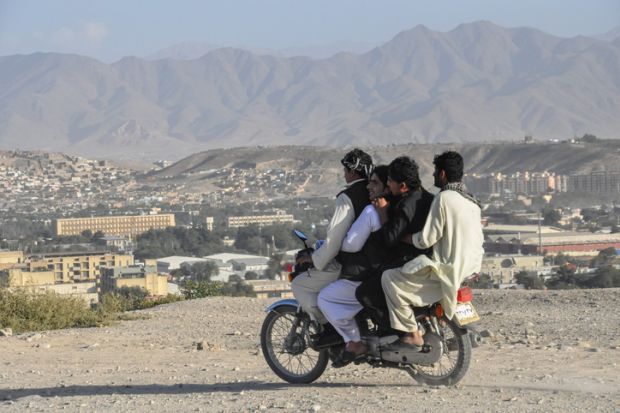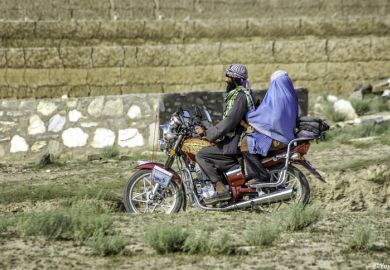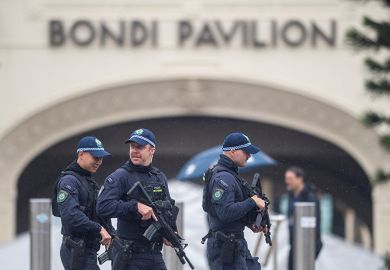The Taliban’s education minister has said that its members should not be required to take exams to become faculty in Afghanistan’s universities – prompting outcry among lecturers.
In a recent speech at Herat University in Afghanistan, Mawlawi Mohammad Neda Nadim said that Taliban commanders who seek to teach at universities should be judged on having overcome “hardship and jihad”, the BBC’s Persian news service reported.
“Young people who have the ability and have spent time here [in Afghanistan] can participate in the exam if they want, but there is no way to take the exam [for] scholars and elders,” he said.
Mr Nadim, who himself has no academic background, said that it wasn’t right to assume that a person seeking to take a lecturer post would be a “scholar of all issues”. Instead, he said, Taliban members should be appointed on their merit as fighters, with their score reflecting “the number of mines” they have set.
While the Taliban has yet to enshrine Mr Nadim’s speech in law, scholars speaking to Times Higher Education believed it would soon gain approval from the extremist government’s cabinet, becoming official policy.
The country’s higher education sector has been in precipitous decline since the Taliban took over the country last August, following the pull-out of American troops.
Since then, the Taliban has increasingly undermined academic freedom, seeking to assert its control over the country’s higher education. The group has segregated male and female students, prevented female lecturers from teaching, mandated more religious education in universities and persecuted scholars who speak out against its practices or who have Western ties.
For institutions, the measures have led to severe faculty shortages and self-censorship. But the recent speech has sparked fears that things could soon get even worse.
While Taliban members had previously been recruited to teach religious courses in universities, the new move was likely to affect all departments, said Abdul Saboor Matin, a research fellow at the University of Central Lancashire.
“This will open the doors for Taliban members [to enter] other faculties,” said Dr Matin, who recently left his post in Afghanistan, where he was an assistant professor of law at Herat University.
He worried that the quality of education would plummet if candidates without any academic qualifications were to start taking on university posts, and that the Taliban could use the policy as an excuse to replace lecturers with legitimate qualifications and experience with its members. “It’s very dangerous for academia,” he said.
A lecturer at Parwan University in central Afghanistan, who spoke to THE on condition of anonymity, agreed.
“If the situation [turns] to this, the quality of education and higher education will come to its lowest level,” said the scholar.
Still, despite his concerns, he was confident that faculty members would make it as hard as possible for the group to install its fighters in lecturer seats.
“The university members will react to this,” he said. “Definitely it will cause faculty to push back.”
Register to continue
Why register?
- Registration is free and only takes a moment
- Once registered, you can read 3 articles a month
- Sign up for our newsletter
Subscribe
Or subscribe for unlimited access to:
- Unlimited access to news, views, insights & reviews
- Digital editions
- Digital access to THE’s university and college rankings analysis
Already registered or a current subscriber?








